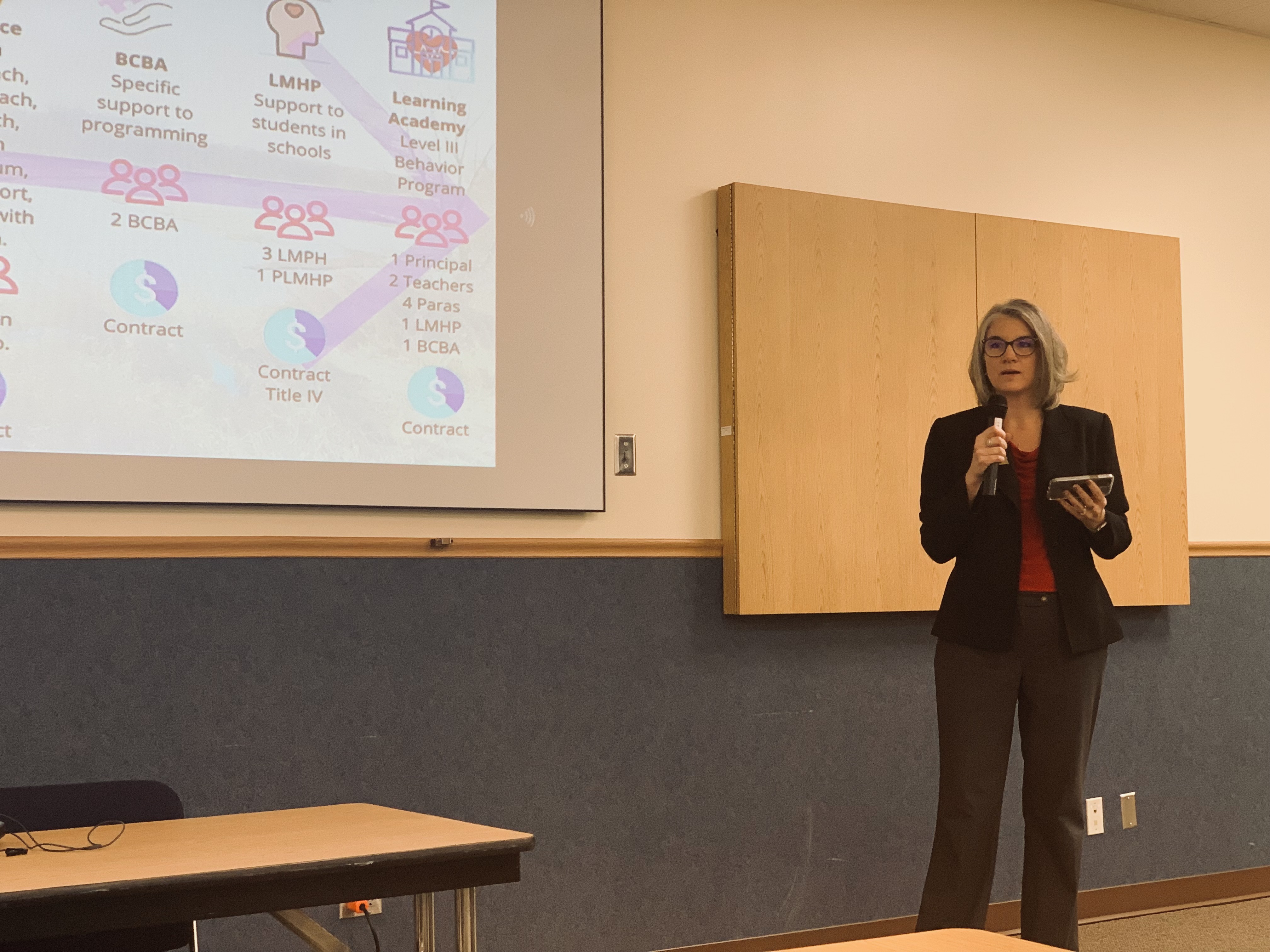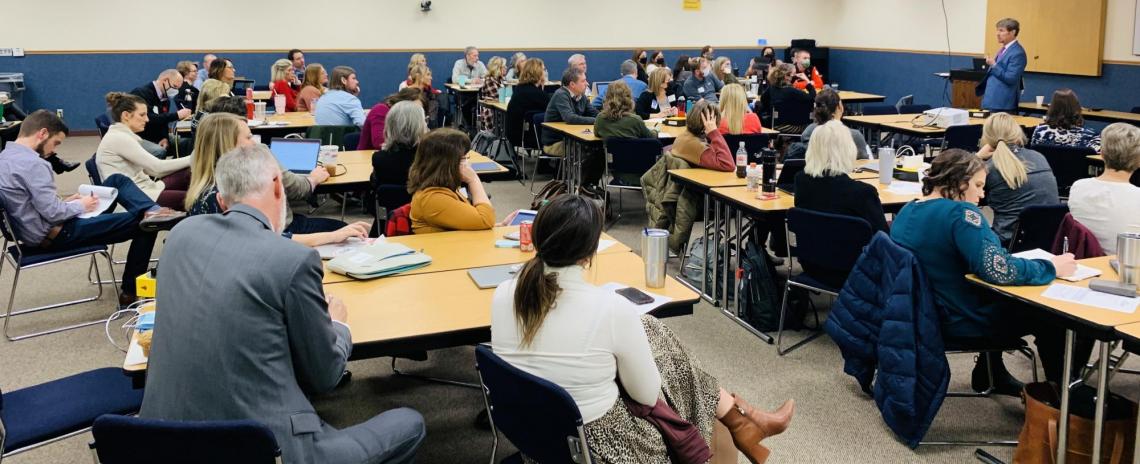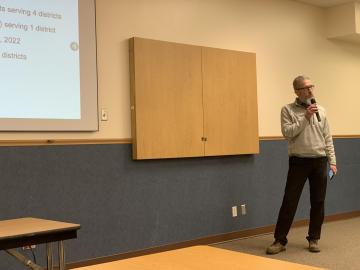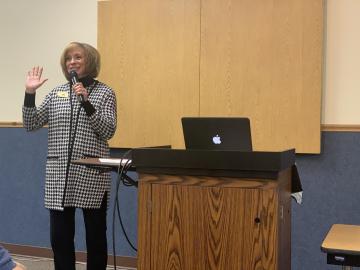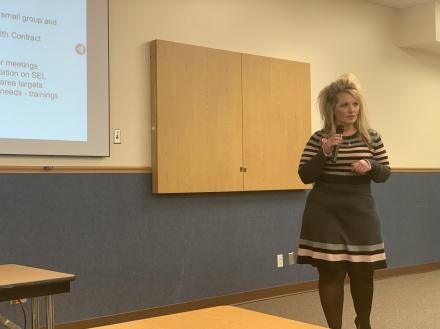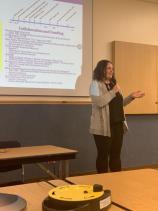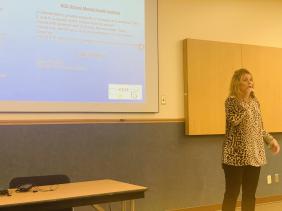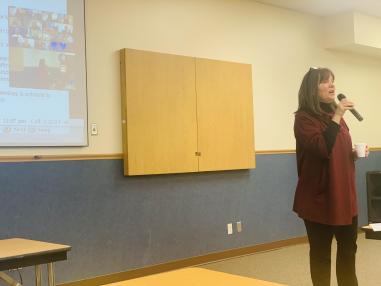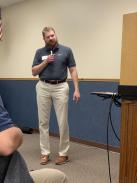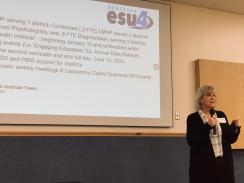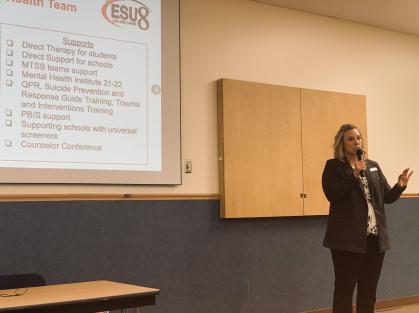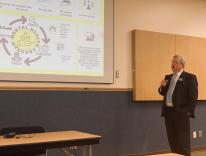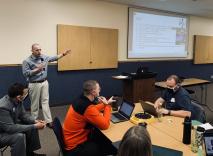Nebraska’s ESUs gather in Kearney for a day of PD around mental health: “It’s become a priority for us, because it’s a priority for our schools.”
Nebraska’s ESUs gather in Kearney for a day of PD around mental health: “It’s become a priority for us, because it’s a priority for our schools.”
By Tyler Dahlgren
Three times each year, Nebraska’s 19 Educational Service Units (ESUs) gather under the same roof for a day of invaluable professional development, addressing a rotating assemblage of issues in education.
ESUCC has seven subgroups that select those focuses based on data gathered and input from districts across Nebraska, ensuring relevance at each ESUPDO event. On Jan. 12 at ESU 10 in Kearney, the priority was mental health, and there were more than 150 ESU professionals in attendance and connected online.
“These meetings are powerful, because there’s so much knowledge and intellect in one room,” said Dr. Kraig Lofquist, Executive Director of the ESU Coordinating Council (ESUCC). “Everybody wins, especially the students in the schools we serve and support.”
The day began with a powerful presentation from keynote Dr. Patrick Friman, a parenting expert with Boys Town and the current Vice President of Outpatient Behavioral Health Services at UNMC. Friman, speaking in front of a live audience for the first time in two years (after racking up 1.7 million frequent flyer miles pre-pandemic), found it invigorating speaking to a group he so highly reveres.
“I honor the profession of education above all,” he said. “It’s increasingly under-recognized, under-supported and underappreciated in our culture, and the job of a teacher is getting harder and harder.”
Friman wanted the audience to take two things from his keynote. First, he wanted the crowd to “understand the value and the significance and magnificence of what they do every day. And secondly, that they are creators of possibility.”
That message resonated, said ESUCC Executive Director Dr. Kraig Lofquist, because creating is exactly what ESUs do.
“The service units here today create solutions to the challenges that their districts have,” said Lofquist. “The unique thing about ESUs, and this is critical, is that we learn from each other.”
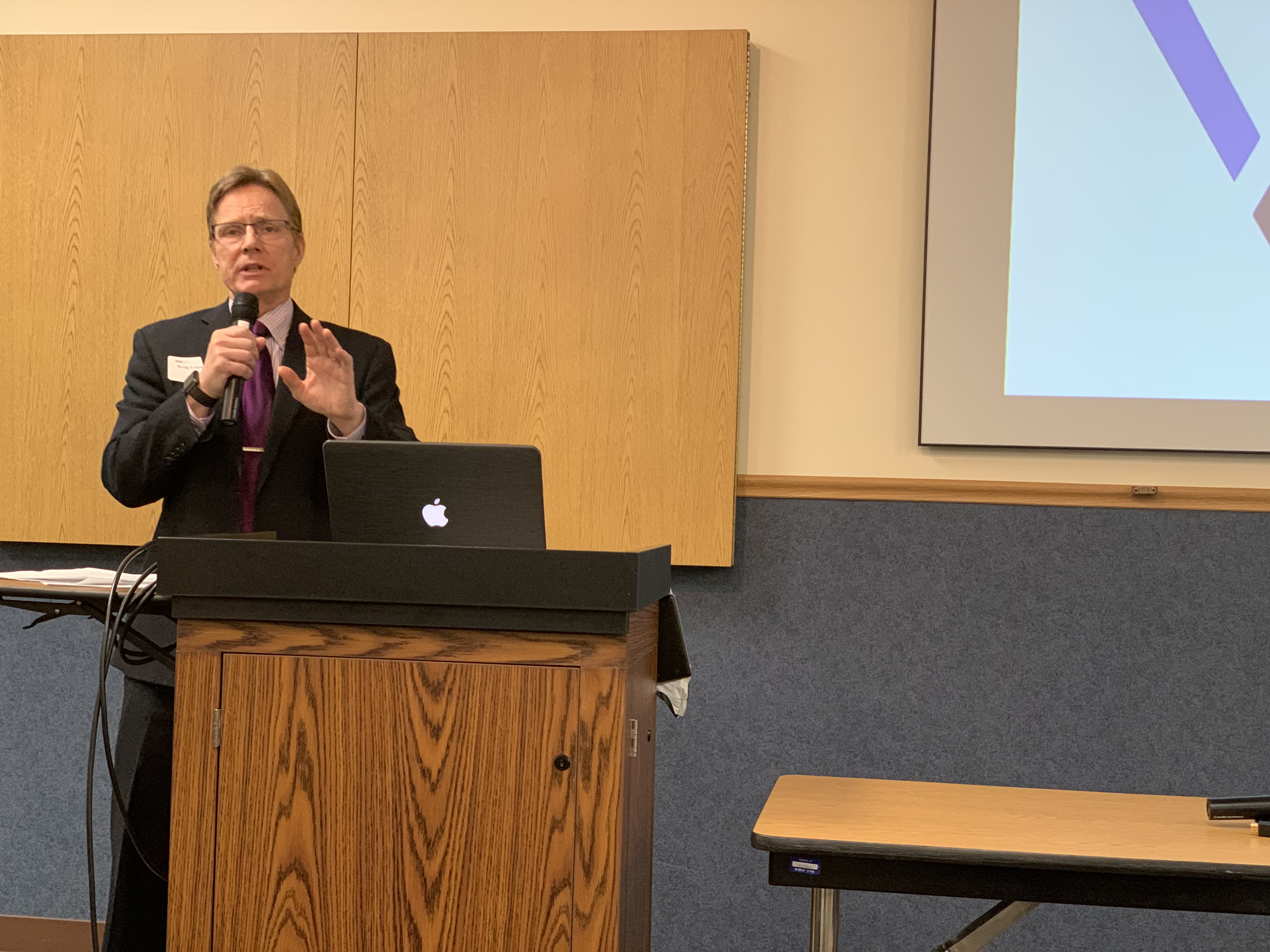
After Friman’s keynote, the Nebraska Department of Education’s mental health team gave a detailed update. Then each service unit was allotted time to share their mental and behavioral health strategies and supports. Around the room, notes were taken and practices were shared.
“Learning from those slides what everyone else is doing and what we can learn from each other, that is such a valuable part of these meetings,” said ESU 7 Administrator Larianne Polk. “By doing this, the bar gets pushed higher.”
The learning and professional development is top-notch, but so, too, is the networking, said ESU 8 Administrator Corey Dahl.
“There’s so many things that we can get out of this,” he continued. “It provides the camaraderie and the networking that everybody needs. In the end, we’re sharing what we learned here with our schools and benefitting the students in those schools. The training for our staff really is vital.”
Throughout the pandemic and well before, mental health was an area that rose to the top of schools’ priority lists.
“There’s a huge risk of burnout in their profession,” said Friman. “Burnout is a function not of working harder, but of working harder and not producing results and not getting any kind of indication that you’re making a difference. So anything I can do to be on the other end of that, to reinforce how heroic educators are, I want to do. Somebody needs to stand up for them.”
Polk was amazed at what ESUs across the state are doing in the area of mental health, mentioning ESU 8’s staff expansion and ESU 1’s cavalry of school psychologists in particular.
“There’s so many good, efficient models our ESUs use to provide really valuable services to schools,” Polk said.
Overwhelming data suggests mental and behavioral health services are a unanimous need for all districts in the state. ESUs are moving fast to offer support, because that’s what they do.
“It’s become a priority for us, because it’s a priority for our schools.”
